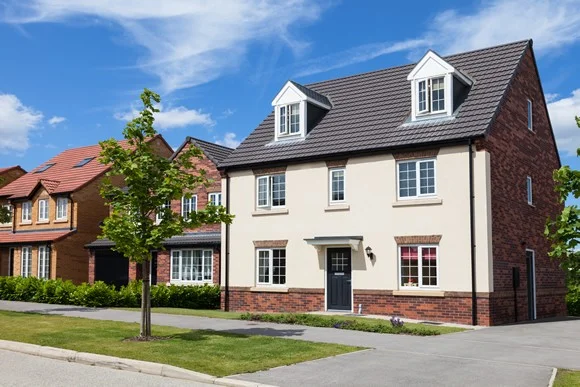UK Government Considering Plans to Launch Its Own Virtual Currency
The United Kingdom has added its name to a growing list of countries looking to leverage the growing popularity of cryptocurrency. Chancellor Rishi Sunak made the announcement at a fintech industry conference, confirming that the UK government is considering the introduction of its own form of virtual currency.
“We’re launching a new taskforce between the Treasury and the Bank of England to coordinate exploratory work on a potential central bank digital currency,” Mr. Sunak explained.
Meanwhile, further details were released by the Bank of England in a statement that confirmed that the proposed currency would be introduced as a “new form of digital money issued by the Bank of England and for use by households and businesses”, designed to coexist with conventional currency rather than replace it.
No formal decision has yet been made on whether a digital version of the GBP will be introduced, with the British government having simply confirmed its intent to investigate the “objectives, use cases, opportunities, and risks” attached to such an initiative.
The Bank of England has also confirmed the establishment of a new internal unit tasked with examining the possibility of introducing a central bank digital currency in the UK.
China hit the headlines last week after officially becoming the world’s first country to introduce its own form of virtual currency. The People’s Bank of China is said to have been working on the digital yuan project for some time, which is now set to be tested on a broad scale at the 2022 Beijing Winter Olympics.
Cryptocurrency’s explosive performance
The news comes less than a week after the world’s most iconic crypto coin surged to a new record high, spurred by a series of high-profile coin purchases and the upcoming debut of cryptocurrency exchange Coinbase.
Bitcoin, which was once trading at just $4, skyrocketed to an astonishing $64,829 last week before falling steeply to just over $56,000 over the course of the weekend due to concerns regarding regulation and the prohibition of its use by a number of national governments.
In the meantime, Doge Coin, a crypto coin originally inspired by a meme, likewise saw a major rally over the past couple of weeks. This has been interpreted by many analysts as further evidence of a bubble in the crypto market, which will inevitably burst at some point in the near future.
If introduced, central bank digital currencies would differ from decentralised crypto coins like Bitcoin, which are not regulated or controlled by any government or central bank. This is the main factor behind the extraordinary volatility of cryptocurrencies, which are known for swinging wildly in both directions with little to no predictability.
Dozens Queue Overnight to Secure Affordable Homes in Wales
The extent and severity of the UK’s housing shortage were made painfully apparent this week when it took just 3 hours for an estate agent in Wales to sell 13 new homes. Dozens of people spent the night on the pavement outside the agency in Aberdare, hoping to secure one of the affordable properties set to go on sale the next morning.
A report from the BBC confirmed that around 30 people slept outside in near-freezing temperatures, some arriving more than 18 hours before the homes were put up for sale there. Despite the somewhat tragic nature of the situation and its reflection of the dire situation facing the housing market, those waiting in line spoke of a party atmosphere.
Some had brought prosecco, intent on toasting their subsequent homeownership in advance.
Unprecedented scenes
A representative from the estate agent said that they had never seen anything like it. The first prospective buyer in line, 32-year-old Hamilton Shaw, arrived in the middle of the afternoon the day before.
“Originally, we planned to go in line at midnight, but with more interest, the time got earlier and earlier,” she told the BBC.
“And it’s a good job we did as the next person came around four o’clock.”
“People were still coming in the early hours and then walking away once they asked those of us queuing which properties we were interested in. It was really heartbreaking.”
While the dismay at having to resort to such measures to secure affordable housing was evident among those queuing, Ms. Hamilton-Shaw and her fellow buyers worked together to keep the mood positive.
“It has been really emotional, just feelings of excitement and anxiety,” she said.
“It was freezing throughout the night, but everyone seemed to be in good spirits, and that helped pass the time.
“And technically, those of us that have the properties are now all neighbours, and we have made friends for once we move in.”
A price worth paying
The affordable housing up for sale was located at a site called Cwm Heulwen, where three-bedroom properties were up for grabs at a price of £184,950 and four-bed homes were available from £320,000.
Average property prices in Wales are currently hovering around £210,000, with both of the above prices being significantly lower than typical homes of a similar size and specification.
34-year-old Hanna Owen, who was one of those who queued overnight to secure one of the 13 new homes available, told the BBC that while the situation was quite shocking, spending a night outdoors was a price worth paying to become a homeowner at the end of it.
“My mother-in-law walked past and told me there was already someone waiting there, and she got in behind, so we ended up being second in the queue,” she told the BBC.
“My sister-in-law and niece took over from 17:00 BST, and then me and my mother-in-law were there from 22:00.”
“It was freezing cold, and my mother-in-law went back to the house numerous times to get bottles of water and flasks of tea,” she said.
“When my sister-in-law first suggested queuing early, I thought she was joking, but I am so glad I did; you have got to be in it to win it.”
“It felt like such a long night, but when I think about it, it’s gone so quickly, and it’s only now kicking in that we are homeowners.”
Detached Property Price Boom Fuelled by Northwest Market
Recent figures have indicated that record numbers of renters and homeowners have been setting their sights on properties outside major urban centres. London in particular was predicted to experience a major exodus throughout 2021 prompted by COVID-19; city centre flats and quick commutes to work are out, while spacious properties in quiet and secluded corners of the country are becoming increasingly popular.
The shift has inevitably had a major impact on the average asking prices of many types of properties, with larger homes seeing the largest spike in demand of all. A new report published by Ascend Properties suggests that the lockdown detached property price boom is being fuelled largely by the property market in the Northwest, not the exodus currently taking place in London.
Average detached property prices are up nationwide
New figures from Ascend Properties indicate that the average market value of a detached home in England has increased by over 7% since the start of lockdown, climbing from £349,995 to £375,000.
The average price growth of 5.7% was also achieved collectively across all property types, which increased in value from £210,000 to £222,000 since the start of lockdown.
In the Northwest, the average market value for a detached home before lockdown restrictions were enforced was approximately £280,000; at the same time, the average price across all other property types was £147,000, a difference of approximately 90%.
Today, detached homes in the Northwest are selling for an average price of £299,995, while the average market value of all other property types is currently standing at £153,000, a difference of 96%.
On average, detached properties in the Northwest have increased in value by 7.1% since the start of the lockdown, the strongest growth of any region in England.
The Northwest of England leads the way
Commenting on the findings, Ascend Properties spoke of several reasons why detached property prices continue to climb across certain regions. “There may well be a shortage of homebuyers leaving the capital in search of larger homes, but the figures show that the North West is actually leading the way where this trend is concerned,” said Ascend Properties managing director, Ged McPartlin.
“Not only does the region rank top for detached property price growth since lockdown was first implemented, but detached homes are also pulling away from the rest of the wider market in terms of the rate of price appreciation.”
“That is not to say other property types are not selling well; there has been strong growth across the board. However, with more buyers searching for larger homes, it does present a good opportunity for first and second-time buyers who are able to find a flat or smaller home for a good price now that there is less competition.”
Making Sense of the New Inheritance Tax Rules
As part of his 2021 budget, Chancellor Rishi Sunak announced a series of minor alterations to the rules regarding inheritance tax. Specifically, Sunak confirmed that the residence nil-rate band will be frozen temporarily, but how will the alterations set to come into place after April affect the average UK resident?
When a person dies, the total value of their estate is subject to taxation at the time it is passed on to their beneficiaries. This includes the cumulative value of their possessions, their property, and their savings. HM Revenue and Customs claims a share of the proceeds in the form of inheritance tax.
Outlined in this year’s budget, Mr Sunak confirmed a series of minor alterations to the inheritance tax system, which could result in some people paying more than in years gone by. Until now, the minimum threshold after which inheritance tax applies has stood at £325,000. This has meant that for a number of years, only those inheriting combined assets valued in excess of £325,000 have been required to pay inheritance tax.
This year’s big announcement regarding inheritance tax policy was the addition of a further £175,000 allowance, specifically for passing a home on to a child or grandchild. The full £325,000 original allowance still applies, though is now coupled with an additional allowance of £175,000.
This further £175,000 allowance, officially called the residence nil-rate band, effectively means that if an estate is allocated to a beneficiary who is a direct descendant of the deceased, no inheritance tax will be payable on the first £500,000 of its value. Many had expected this £175,000 allowance to be increased in accordance with inflation, but we now know it will stay at the same level.
In addition, some have criticised the government for failing to increase the standard inheritance tax threshold in more than a decade. The most recent increase occurred in April 2009, when the threshold was changed from £312,000 to the current £325,000. Critics argue that this fails to take inflation or rapidly elevating property prices into account, ultimately resulting in more beneficiaries than ever before facing an elevated inheritance tax.
Speaking on behalf of MoneySavingExpert, money editor Johanna Noble pointed out that what appears to be a positive announcement on the surface could actually result in more people finding themselves liable for inheritance tax.
The best thing to do is to make sure you have an up-to-date will, she added.
“While a freeze in inheritance tax may sound like a good thing, it means that in the long run, more people will pay it, and those who do will pay more,” she told Express.co.uk.
“This is because the value of assets such as homes, cash, and investments is likely to rise with inflation, as will wages, pushing some estates over the threshold when you’ll start paying tax and making more of the estate taxable.
“The most important thing to do is make sure you’ve got a will in place so your estate goes where you want it to. It’s also worth considering if you want to gift some money before you die, as some smaller gifts, including wedding and charity gifts, are exempt.
“However, if you have sizeable assets, it’s worth getting tax advice from a professional.”
Housing Market Performs Beyond Expectations in March, Halifax Data Suggests
The run-up to the Easter home buying season has apparently put an early “spring in the step” of many movers and first-time buyers, according to the latest figures released by Halifax.
Part of the biggest high street mortgage provider in the UK, Lloyds Banking Group, Halifax, spoke of a resurgence in activity in the country’s real estate market throughout the course of March. The improved performance had been predicted by many because of the confirmed stamp duty holiday extension covering most property purchases in England, Wales, and Northern Ireland.
Growing demand for desirable properties in key areas across the UK resulted in an average house price growth of 6.5% in March, compared to the same time in 2020. This took the average UK house price to just over £264,600.
Affordability issues for first-time buyers
This reassuring increase in average property prices will undoubtedly come as welcome news to current homeowners and those planning imminent moves; however, it is likely to cause further concerns for many first-time buyers, for whom affordability may have been an issue even before the recent house price growth, particularly those who have had their income and job status affected by the COVID-19 crisis.
Likely to serve as a lifeline for many, several major high-street banks have confirmed their intent to take part in a government-backed loan scheme, which will enable them to reintroduce 95% LTV mortgages for the first time in years. This will open the door to mortgages that require only a 5% deposit, giving more first-time buyers the opportunity to get on the housing ladder.
Long-term market projections
It remains to be seen how the UK’s slow return to some form of normality affects the real estate market; nevertheless, some experts believe that a prolonged slowdown over the course of the year is largely inevitable due to the lingering effects of the COVID-19 pandemic.
“With the economy yet to feel the full effect of its biggest recession in more than 300 years, we remain cautious about the longer-term outlook,” commented Russell Galley, managing director at Halifax.
“Given current levels of uncertainty and the potential for higher unemployment, we still expect house price growth to slow somewhat by the end of this year.”
Monthly house price growth for March was recorded by the Halifax at 1.1%, suggesting that the average UK property had increased in value by just over £15,400 over the past 12 months. Performance that exceeded most expectations, given the catastrophic economic impact of three consecutive lockdowns.
“Casting our minds back 12 months, few could have predicted quite how well the housing market would ride out the impact of the pandemic so far, let alone post growth of more than £1,000 per month on average,” Mr. Galley added.
Co-Founder of Anorak Confirms Planned Collaborations with Mortgage Brokers
One of the web’s leading protection providers has confirmed its plan to establish partnerships with mortgage brokers to make it quicker and easier for borrowers to safeguard themselves from future financial issues.
In a recent interview with FTAdviser, Anorak’s co-founder and chief executive officer, David Vanek, explained his intention to begin selling protection with mortgage broker support, with further announcements on the specifics of these collaborations coming soon.
“We can either be their protection service, so they refer to us as their protection clients on our online journey,” he said. “But some [mortgage brokers] have expressed a keen interest in using our digital platform for their own benefit and their protection team,”
“So a mortgage broker will use Anorak on a fully white-label basis to help their advisers and their clients get the right protection.”
Anorak is an established and reputable online protection provider that offers independent expert advice on critical illness coverage, income protection, and life insurance. All of these are considered essential for prospective borrowers applying for a mortgage and similar long-term secured loans.
After answering questions on employment status, smoker status, and additional lifestyle factors, customers are provided with a series of quotations and coverage options available.
Speaking on behalf of Anorak, Mr. Vanek stated that the current protection market was “very dated” and needed to be significantly modernised in order to help borrowers access the advice they need on the various forms of financial protection available.
“Most of the distribution partners we are discussing with, whether they are banks or a digital platform, what they want now is an online-first touchpoint with a digital platform that can help the client go quite far before someone needs to pick up the phone and talk to them,” he said.
He also emphasised the importance of providing every customer with fully independent advice and personalised quotations, rather than the generic advice typically provided via online channels, prior to telephone calls or in-person meetings taking place.
“We are passionate about advice, and we think that everyone should get access to advice online first and be educated about what type of protection they need,” he said.
“It doesn’t mean that because it’s online, it’s online-only. I think we still see and value human expertise, but it should be online first.”
The announcement from Anorak closely follows a warning issued by an independent protection expert panel concerning the inadequacies and inefficiencies of the current customer buying experience as far as insurance and financial protection products are concerned.
Furlough-Friendly Mortgage Applications Continue to Rise
Brokers across the UK reported increased demand from mortgage applicants seeking flexible and accessible mortgages, having had their employment status and income affected by mandatory business closures. Furlough-friendly mortgage activity increased almost 70% in January, followed by a further 8% increase in February, Legal & General reports.
The news has been welcomed by industry observers, among whom many had predicted stagnation or a significant decline after January’s rapid growth. With the UK having been plunged into another major lockdown, the real estate market was once again predicted to slow down.
It was estimated that approximately 4.7 million people were still on the government’s furlough scheme in February, with no clear indication as to when they would return to work.
Stamp duty holiday incentives
A major spike in mortgage application activity between December and January was attributed largely to the original March 31 stamp duty holiday deadline. Motivated by the potential to save thousands of pounds by avoiding or reducing stamp duty liability, many buyers attempted to rush through property purchases during this time.
This resulted in an unprecedented 230% spike in furlough-friendly mortgage applications between December and January, as those being supported by the furlough scheme at the time sought to take advantage of the stamp duty suspension.
With most major lenders demonstrating reluctance to applications from furloughed workers, many were turning to brokers to access specialist home loans from independent lenders not available on the High Street.
Adverse effects on financial status
The same report from Legal & General indicated a 27% increase in the number of searches brokers performed for lenders who would consider working with customers who had previously missed mortgage payments.
A spokesperson from Legal & General said that this reflects the growing number of individuals and households that have had their financial status adversely affected by the COVID-19 crisis.
As demand for desirable properties in key locations across the UK remains strong, average house prices are also increasing steadily.
According to the Office for National Statistics, average property prices in the UK were up around 8.5% compared to the same time last year. Over a 12-month period where many had expected house prices to plummet across the country, the real estate market weathered the impact of COVID-19 better than most could have predicted.
“The wide-ranging implications of COVID-19 are continuing to play out in the mortgage market, and it’s clear that advisers are playing a critical role for borrowers,” said Clare Beardmore, head of mortgage transformation and operations at Legal & General Mortgage Club.
“Not only are many focusing their efforts on finding lenders that meet the needs of those with more complex financial circumstances, including those on furlough, but they are increasingly supporting others with more affordable routes onto the ladder too.”
Prospective borrowers concerned about their eligibility for traditional high-street mortgages are being advised to consult with independent brokers rather than approaching banks directly.
How Coronavirus Has Radically Changed the Priorities of Homebuyers
COVID-19 (and three consecutive national lockdowns) have had a major impact on the lives of every person in the United Kingdom. In particular, real estate market activity has illustrated how thousands of movers and first-time buyers have completely changed their priorities with regard to preferred property types and locations.
According to the latest figures from Rightmove, London has been overtaken by Cornwall for the first time as the UK’s most desirable location for residential properties. Devon has also been propelled in the rankings to third, while Dorset now sits in 10th position after previously ranking 20th.
The findings come as no surprise to the vast majority of UK estate agents, who throughout the pandemic noted a major spike in interest in rural homes, countryside properties, and larger residential dwellings with gardens.
Interest in city centre flats and urban homes with convenient transport connections has been diminishing throughout the COVID-19 crisis as the UK gets used to a new era of working from home and spending more time than ever indoors.
A larger home is a priority for buyers
The figures released by Rightmove suggest that sales of larger homes are accelerating significantly across the country, resulting in a major shortage in inventory in some locations.
For example, five-bedroom detached home sales have increased by as much as 38% over the past year, compared to the 15% increase in sales volumes for four-bedroom flats. Five-bedroom and four-bedroom bungalows have also skyrocketed in popularity, achieving 22% and 20% growth, respectively.
Meanwhile, private renters are likewise setting their sights on entirely different rental properties, predominantly away from busy urban centres. Two-bedroom and one-bedroom flats were the most sought-after rental property types in February last year; this year, it is two-bedroom semi-detached and detached houses that have topped the rankings.
“More space has always been the most common reason for people moving home, but the evolution for many, from balancing their laptop on the end of a bed last March to making an office a permanent addition to a home, has led to a need for even bigger homes than before,” commented Rightmove’s director of property data, Tim Bannister.
Estate agents expect a gradual return to normalcy
The lingering effects of the COVID-19 pandemic could result in a permanent or semi-permanent alteration to the priorities of buyers and movers across the United Kingdom; however, many estate agents believe that the current shift in interest will gradually wane, ultimately paving the way for a slow return to normality.
This is attributed to the fact that record demand for certain property types in desirable areas of the country is already resulting in major property price increases. Average house prices in regions once considered less desirable than their central urban counterparts are predicted to skyrocket, effectively pricing many movers out. At this point, it is inevitable that many will once again have no choice but to set their sights on more affordable urban dwellings, at least partially reversing the mass exodus away from central city living.








